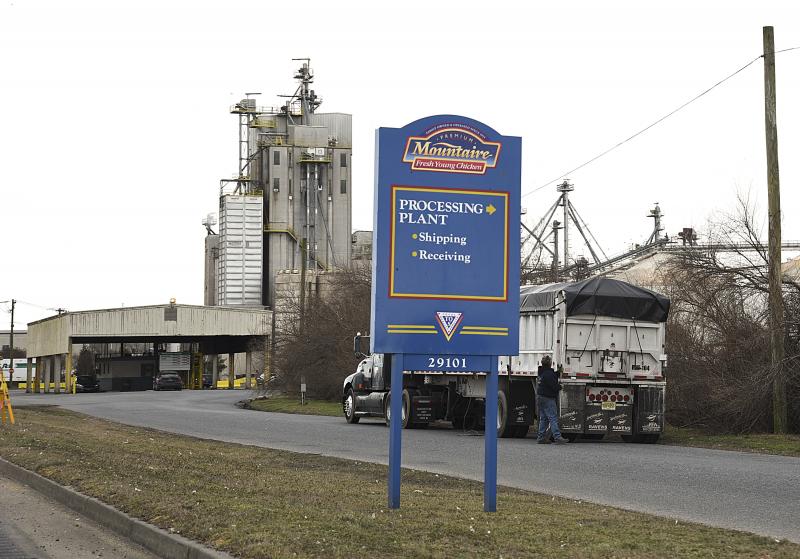DNREC accepting public comment on Mountaire decree

Citizens will have an opportunity to comment on a proposed consent decree that would resolve environmental violations committed by Mountaire Farms in Millsboro in Nov. 2017.
Delaware Department of Natural Resources and Environmental Control opened the 30-day public comment period Feb. 1, and it will run until the end of the month. The consent decree will be sent to U.S. District Court of Delaware for approval. DNREC spokesman Michael Globetti said public comments will be considered by DNREC before going to the court; he said Judge Maryellen Norieka has not asked to review the comments. The public comment period is part of the consent decree.
For DNREC and Mountaire, the consent decree would resolve violations of Mountaire’s spray irrigation permit. DNREC filed suit against Mountaire in both federal and state court to resolve the issues.
Under the federal consent decree, Mountaire must pay a $600,000 fine and undertake a major upgrade to its wastewater treatment plant in Millsboro. Mountaire can reduce the fine by as much as 30 percent if it makes additional environmentally beneficial changes to the plant. Mountaire must also take interim measures to mitigate potential nitrate loading at its spray fields while the plant upgrades are under construction. Mountaire must also relocate its water supply wells and provide options for an alternative water supply for nearby residents.
Complicating things is that more than 800 nearby residents, led by Gary and Anne-Marie Cuppels, are part of a class-action lawsuit against Mountaire for damages related to contaminated water. They have won the right to intervene in DNREC’s case against Mountaire.
Litigants in the class-action suit have been placed under a gag order by a Delaware judge. According to court filings, attorney Chase Brockstedt and his clients oppose the consent decree on the grounds that it does not go far enough in addressing groundwater and surface water contamination from Mountaire’s plant. In court filings, Brockstedt said his clients have been excluded from the process of drafting the consent decree by DNREC, even though the federal court granted them the right to participate in the process. Brockstedt asked the court not to approve the decree.
According to a letter from Mountaire attorney Michael Teichman to Judge Maryellen Norieka and Magistrate Judge Jennifer Hall, Mountaire and DNREC met with lawyers for the Cuppels and their consultants to address objections to the decree. In his letter, Teichman said the parties will meet again before providing an update Friday, Feb. 14.
Meanwhile, Delaware Superior Court Judge Craig Karsnitz denied a motion by Mountaire to dismiss the Cuppels’ suit in state court.
Delaware law establishes that the violation of a law enacted for the safety of others is negligence per se. Mountaire argued that the Delaware Environmental Control Act, which the Cuppels accuse the company of violating, did not qualify as a safety statute but was instead the equivalent of a land-use law or a zoning ordinance.
“I disagree,” Karsnitz wrote in his opinion. “The environmental control act and its regulations are to protect both individuals who live near discharge points and the public in general.”
Karsnitz is still weighing a motion to certify the class in the suit; the state suit filed by the Cuppels had been stayed as the sides were in mediation, but no resolution was reached.
As for public comments on the consent decree, they can be made by email to DNRECHearingComments@delaware.gov, or by regular mail to Lisa Vest, Office of the Secretary, 89 Kings Highway, Dover, DE 19901. Written comments will be accepted until the close of business Monday, March 2.
Ryan Mavity covers Milton and the court system. He is married to Rachel Swick Mavity and has two kids, Alex and Jane. Ryan started with the Cape Gazette all the way back in February 2007, previously covering the City of Rehoboth Beach. A native of Easton, Md. and graduate of Towson University, Ryan enjoys watching the Baltimore Ravens, Washington Capitals and Baltimore Orioles in his spare time.

















































